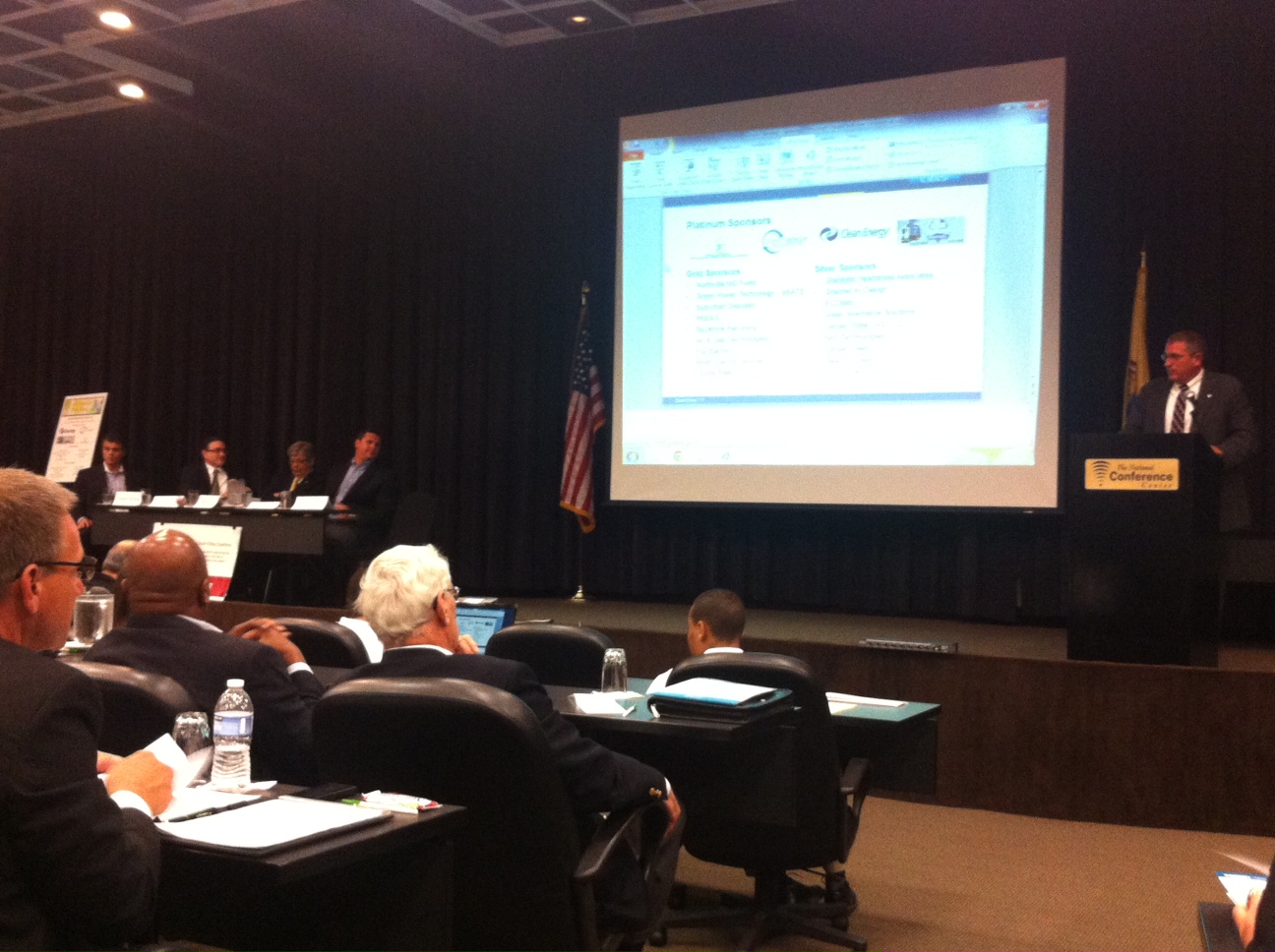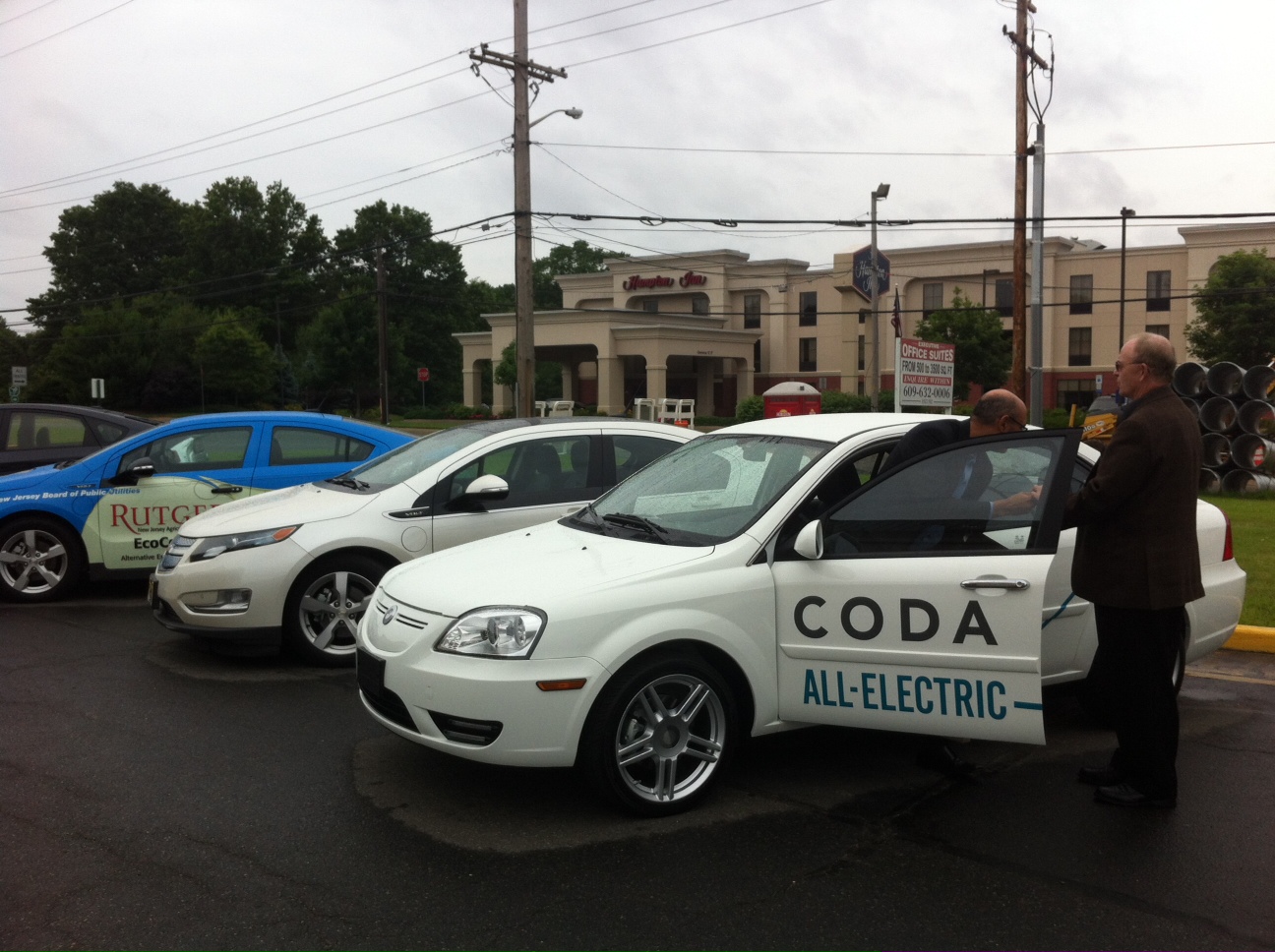NJ Clean Cities Coalition Holds Annual General Stakeholder Meeting
On June 12, 2012, NAFA attended the New Jersey Clean Cities Coalition’s annual General Stakeholder Meeting at the National Conference Center in East Windsor, NJ. Years after the organization began holding stakeholder meetings in front of a few dozen people, nearly 150 came out to hear panels discuss alternative fuels and learn about alternative fuel vehicles that are available today and those that will be coming in the future. A mixture of government officials and business leaders currently practicing sustainability handed out advice and spoke from experience during the morning meeting.
"If you’re relying on government funds alone, that’s a pretty darn risky business plan for anybody," said Robert M. Hanna, Esq., President of the New Jersey Board of Public Utilities who was the event’s Keynote Speaker. He was speaking to those in the audience interested in sustainability programs, but his words could just as easily been directed to the New Jersey Clean Cities Coalition itself.
Prior to introducing Hanna, Chuck Feinberg, the Chairman of the New Jersey Clean Cities Coalition, gave an update on the state of the organization and its goals. Starting off on a positive note, Feinberg noted that 2013 would be the twentieth anniversary of the Clean Cities Coalition; a national conference is currently being planned to celebrate the milestone. Unfortunately, the positive vibe turned to a sour dose of reality when he announced that the organization’s budget had been slashed from $80,000 in 2011 to $25,000. A similar situation has hit Clean Cities Coalition organizations throughout the United States.
As a designated Coalition within the U.S. Department of Energy’s Clean Cities Program, the NJ Clean Cities Coalition is one of approximately ninety similar entities across the US, and the only one in New Jersey. Clean Cities strives to advance the nation's economic, environmental, and energy security by supporting local decisions to adopt practices that contribute to the reduction of petroleum consumption. The Clean Cities network of coalitions support the development of public/private partnerships to promote alternative fuels and advanced vehicles, fuel blends, fuel economy, hybrid vehicles, and idle reduction. The budget cuts across the board will make their efforts that much more difficult to achieve for fleets managers.
"There is both promise and peril associated with the government getting involved in anything," explained Hanna as he stressed the need for public-private partnerships to make up the difference in funding. "My job is to find how we can spend tax dollars in the wisest way to achieve our objectives."
A panel entitled "Alternative Fuels – the Economic and Environmental Case" followed Hanna’s Keynote. Moderated by Mount Arlington (NJ) Mayor Art Ondish, President of the NJ League of Municipalities, the panel was comprised of representatives for propane autogas, natural gas, electric, and biodiesel. The panel included Bill Curcio, Eastern Propane and the NJ Propane Gas Association; Mike Cecere, Clean Energy; Paul Heitmann, Ecotality; and Danny Falcone, Ultra Green Energy Services. While each panelist offered reasons why their alternative fuel of choice was a smart investment, Cecere spoke for all alternative fuels when he said, "If it didn’t make economic sense, nobody would do it."
A second panel entitled, "Alternative Fuel Vehicles – Options Available Today and Coming Tomorrow" moderated by Wayne Wittman, PSE&G, was up next. This panel offered the perspective of light-duty EVs, mid/heavy-duty EVs, and natural gas vehicles. It also presented the perspective of a fleet owner currently using such vehicles. The panel included Wittman; Brett Gibe, Smith Electric; Dean Sloane, Clean Vehicle Solutions; and Kerry Roselle, Suburban Disposal. In the end, Wittman put a light on the progress of alternative fuel vehicles when he said, "Two years ago, you couldn’t buy electric cars in New Jersey; today, three are for sale less than ten miles from where we are today." Progress like was highlighted with all of the alternative fuel vehicles and gave the audience a sense of just how quickly things are moving.
In addition to the panels, about two dozen companies had exhibits and vehicles on display at the meeting. Sponsors included Clean Energy, Clean Vehicle Solutions, Blue Diamond Disposal, New Jersey Propane Gas Association, Northville NG Fuels, Green Power Technology – eEATS, Suburban Disposal, PSE&G, Bayshore Recycling, Air & Gas Technologies, Fuji Electric, Smith Electric Vehicles, Toyota Fleet, Gladstein Neandross Associates, Greener By Design, ECOtality, Green Alternative Solutions, BAF Technologies, Clipper Creek, Clean N’ Green, Future Fuels Now, LLC, and Garden State LNG, LLC.
The New Jersey Clean Cities Coalition is hosting a public and private fleet workshop entitled "The Compelling Case for Natural Gas Vehicles (NGV)" on Thursday, July 12 at The National Conference Center in East Windsor. For more information visit the events page at http://www.njcleancities.org.


